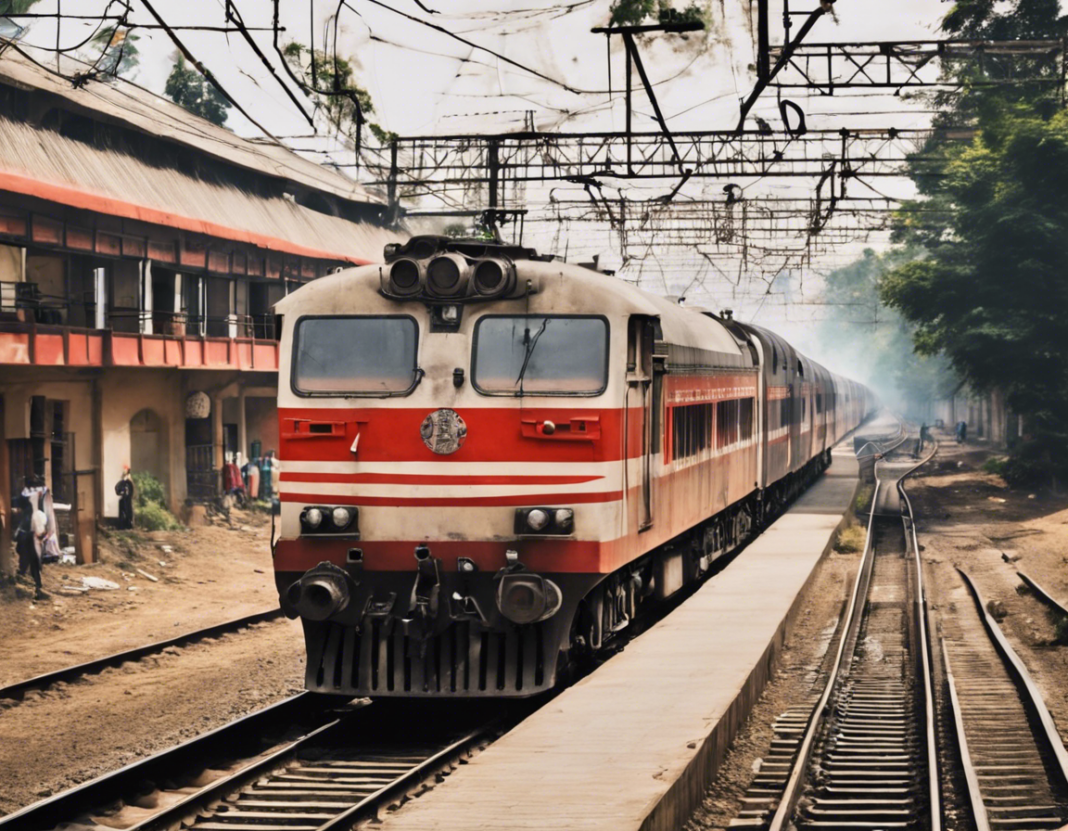Are you puzzled by the acronym RPF? Do you keep hearing it pop up in various contexts but can’t quite grasp what it means? Well, have no fear, because I’m here to shed some light on the full form and meaning of RPF.
What is RPF?
Definition and Origin
RPF stands for Railway Protection Force. It is a specialized security force in India entrusted with protecting railway passengers, passenger area, and railway property, and addressing crimes on the railway network. The force also has the mandate to ensure safe and secure travel for passengers.
History and Evolution
The history of the RPF goes back to the mid-19th century when the need for a dedicated force to protect the ever-expanding railway network in India was recognized. The Railway Protection Force Act was enacted in 1957, officially establishing the force.
Roles and Responsibilities of RPF
Ensuring Passenger Safety
One of the primary responsibilities of the RPF is ensuring the safety of passengers during their journey. This includes protecting them from various threats such as theft, harassment, and other crimes.
Protection of Railway Property
The RPF is also tasked with the protection of railway property. This involves safeguarding railway assets, infrastructure, and facilities from damage, vandalism, and theft.
Maintaining Law and Order
Maintaining law and order on railway premises is another vital function of the RPF. The force works to prevent and address incidents of unruly behavior, disturbances, and criminal activities on trains and at stations.
Ensuring Security During Special Events
During special events, festivals, or peak travel seasons, the RPF plays a crucial role in ensuring security and managing crowd control to facilitate smooth operations and prevent any untoward incidents.
Collaboration with Other Law Enforcement Agencies
The RPF collaborates with other law enforcement agencies at the state and national levels to coordinate security measures and address cross-jurisdictional issues effectively.
Training and Recruitment Process
Selection Criteria
Candidates interested in joining the RPF are required to meet certain selection criteria, including educational qualifications, physical fitness standards, and age limits, among others.
Training Program
Selected candidates undergo rigorous training programs that equip them with the necessary skills and knowledge to perform their duties effectively. The training curriculum covers aspects like law enforcement, crowd management, first aid, and self-defense techniques.
Career Progression
The RPF offers opportunities for career progression through promotions and specialized training programs, allowing personnel to advance to higher ranks and take on leadership roles within the force.
Challenges Faced by RPF
Staff Shortages
Staff shortages pose a significant challenge to the effective functioning of the RPF, as the force often has to manage a vast railway network with limited personnel.
Modernization and Technology
Adapting to modernization and leveraging technology tools for effective surveillance and crime prevention is another challenge faced by the RPF in enhancing its security capabilities.
Public Awareness and Cooperation
Public awareness about the role of the RPF and the need for cooperation in ensuring railway security is crucial for the force to fulfill its mandate successfully.
Infrastructure Upgrades
Investments in infrastructure upgrades and security enhancements are essential to strengthen the security apparatus of the RPF and address evolving security threats effectively.
FAQs about RPF
1. Is the RPF responsible for ticket checking on trains?
No, the primary role of the RPF is to ensure the safety and security of passengers and railway property. Ticket checking is typically done by the Ticket Checking Staff (TTE) or Commercial Inspectors.
2. Can passengers approach the RPF for assistance during their journey?
Yes, passengers can approach RPF personnel stationed on trains or at stations for assistance in case of emergencies, security concerns, or any other issues requiring intervention.
3. Are there separate units within the RPF for specialized tasks?
Yes, the RPF has specialized units such as the Women’s Protection Force, Anti-Terrorist Squad, and Dog Squad to cater to specific security requirements and respond to different types of threats.
4. How can one report a security incident or crime to the RPF?
Passengers can report security incidents or crimes to the RPF by contacting the nearest RPF personnel, helpline numbers, or using designated complaint mechanisms available at stations and online platforms.
5. Does the RPF collaborate with other security agencies for large-scale events or operations?
Yes, the RPF often collaborates with other security agencies such as the Government Railway Police (GRP), local police, and central intelligence agencies for coordinated operations, especially during major events or security alerts.
Navigating the world of railway security and understanding the role of the Railway Protection Force can be complex, but with this comprehensive guide, you are now equipped with the knowledge to decipher the full form and meaning of RPF. The RPF’s dedication to ensuring safe and secure rail travel for passengers underscores its vital role in India’s railway ecosystem.

